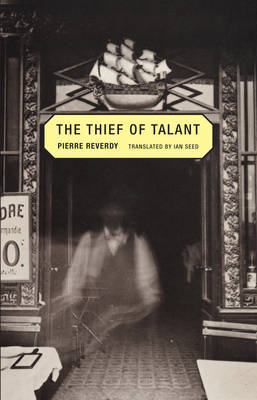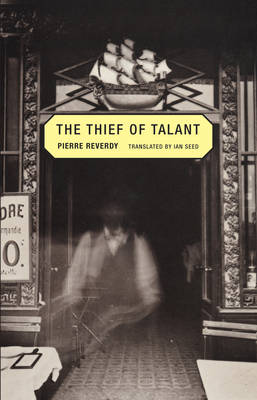
- Afhalen na 1 uur in een winkel met voorraad
- Gratis thuislevering in België vanaf € 30
- Ruim aanbod met 7 miljoen producten
- Afhalen na 1 uur in een winkel met voorraad
- Gratis thuislevering in België vanaf € 30
- Ruim aanbod met 7 miljoen producten
Zoeken
Omschrijving
Challenged by his friend, poet and art critic Max Jacob, to write a novel, Pierre Reverdy produced this fragmented, beautiful assemblage of loneliness, paranoia and depersonalization drawn from his own experience of Paris in the early 20th century, the sometimes antagonistic atmosphere of the avant-garde and his own troubled relationship with Jacob, who tended to detect the threat of his literary treasures being plagiarized among everyone he knew. Toward the end of his life, Reverdy confirmed that the alienated, anxious "thief" of this novel in verse was a portrait of himself ("Talant" conveys both the dual echo in French of "talent" and the small town of Talan near Dijon, thereby evoking a potential plagiarizer from the countryside), and "Abel the Magus," a semi-satirical portrait of Jacob. Originally published in French in 1917, The Thief of Talant is a radical experiment in verse and narrative, a moving evocation of the loss (and recovery) of self and an encrypted guidebook to the "heroic" years of Cubism. Pierre Reverdy (1889-1960) was a reclusive yet integral component of the early Parisian avant-garde and a friend to painters such as Modigliani, Picasso and Gris, who, with fellow poets such as Apollinaire and Jacob, came to represent a faction known as the "Cubist poets." In 1926, Reverdy withdrew from Paris for a life of seclusion in the northwest of France.
Specificaties
Betrokkenen
- Auteur(s):
- Vertaler(s):
- Uitgeverij:
Inhoud
- Aantal bladzijden:
- 144
- Taal:
- Engels
Eigenschappen
- Productcode (EAN):
- 9781939663191
- Verschijningsdatum:
- 27/09/2016
- Uitvoering:
- Paperback
- Formaat:
- Trade paperback (VS)
- Afmetingen:
- 114 mm x 178 mm
- Gewicht:
- 181 g

Alleen bij Standaard Boekhandel
+ 37 punten op je klantenkaart van Standaard Boekhandel
Beoordelingen
We publiceren alleen reviews die voldoen aan de voorwaarden voor reviews. Bekijk onze voorwaarden voor reviews.











